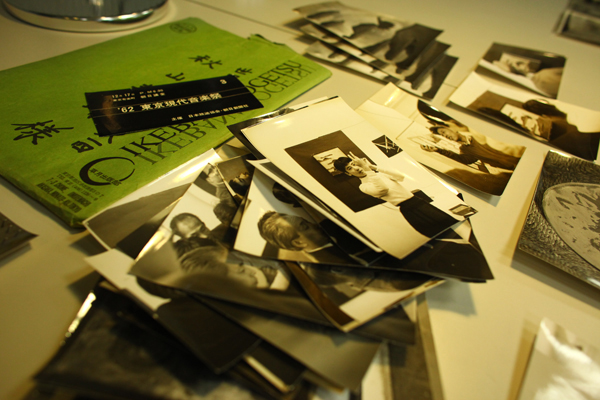Posts from the ‘digital publishing’ Category
![]()
Artstor announces new Digital Humanities Award
http://www.artstor.org/news/n-html/digital-humanities.shtml
Winners will receive five years’ free use of Shared Shelf cloud-based asset management tool.
Shared Shelf was created by Artstor in collaboration with eight colleges and universities and The Society of Architectural Historians to help institutions build, manage, and preserve image and video collections. It’s a cloud-based service that allows for straightforward management of the sorts of complex rich media collections that support many Digital Humanities projects, allowing content to be used and re-used in different contexts while maintaining a stable and flexible home for assets.
The service currently supports such diverse projects as the NYU archeological excavations at Abydos, the UMass-Amherst Biodiversity project, the UCSD travelogue film collection, and 29 different Cornell University collections ranging from Hip Hop Party and Event Flyers to images from major illustrated editions of Dante’s Divine Comedy and the Plant Pathology Herbarium. Collections managed in Shared Shelf can draw upon Web services supporting authority files built into its vocabulary warehouse, and can be published out to open websites (such as collection specific Omeka sites or Shared Shelf Commons, an open-access library of digital media from institutions that subscribe to Shared Shelf), into the Artstor work space (alongside Artstor Digital Library content), or into an emerging set of disciplinary portals. All content (metadata and source image/video files) is managed and preserved in accordance with NSDA Level 1 requirements and is available to collection managers at all times without any “lock in,” can be harvested dynamically through OAI protocols, or be called from open APIs.
As a non-profit institution working to derive shared solutions to challenges of the digital world, Artstor believes that the Digital Humanities Awards will recognize and help support innovative and intellectually stimulating projects in the field — and give digital scholars the chance to create and maintain those projects using Shared Shelf.
 Scalar @ ANVC (Alliance for Networking and Visual Culture at USC):
Scalar @ ANVC (Alliance for Networking and Visual Culture at USC):
http://scalar.usc.edu/learning_scalar/webinar-schedule/
Join us for upcoming webinars.
To follow up on our recent Beta release, the Scalar development team will be offering a series of free online webinars this spring and summer.
Our “Introduction to Scalar” webinars will cover basic features of the platform: a review of existing Scalar books and a hands-on introduction to paths, tags, annotations and importing media. Our “Intermediate Scalar” webinars will delve into more advanced topics including the effective use of visualizations, annotating with media and a primer on customizing appearances in Scalar.
Our summer schedule includes the remaining dates:
Intermediate Scalar: July 31, 4-6pm (PST)
Our fall schedule includes six dates:
Introduction to Scalar: August 21, 10am-12pm (PST)
Intermediate Scalar: September 11, 10am-12pm (PST)
Introduction to Scalar: September 25, 4pm-6pm (PST)
Intermediate Scalar: October 9, 4pm-6pm (PST)
Introduction to Scalar: October 30, 10am-12pm (PST)
Intermediate Scalar: November 20, 10am-12pm (PST)
Spaces are limited, so sign up now!
To register for the online webinars, please visit our registration page.
The Museum of Modern Art launches post, a participatory digital platform for global research
February 20th, 2013
April Durham
The Museum of Modern Art launches post,
a participatory digital platform for global research
post is an open forum for sharing research and circulating works in progress, offering a platform for critical response and an instrument for increasing expertise through exposure to ideas from around the globe. It is a place for conversation and debate, for building a nuanced understanding of the histories that shape our present. As a Web platform, post provides an alternative to the model of a unified art-historical narrative. post instead allows a malleable, layered understanding of multiple notions of modernity to emerge over time, as more people from more places participate.
Emerging out of research undertaken at MoMA, post develops a network of partners and users whose complementary research and concerns will shape future approaches and content. Starting with a specific thematic focus, the site regularly releases essays, interviews, reports, reflections, archival materials, and artists’ commissions, ensuring that new voices are constantly entering the discussion. The site is designed to encourage active participation; users and institutional partners are encouraged to upload their own findings and share their questions, together gaining broader exposure and expertise. In time, and depending upon the interest of the partners, post will broaden its focus.
Committed to investigating artistic practices that have historically been overlooked in MoMA’s collection and exhibitions, post initially explores sites of experimental practices in regions that are the focus of C-MAP research: East Asia, Central and Eastern Europe, and Latin America and the Caribbean. Upon its launch, post will present its first case study, in partnership with Keio University Art Center, featuring the archival materials of Sogetsu Art Center, an epicenter of avant-garde artistic experiments in Tokyo in the 1960s that hosted an exciting, rapid-fire series of programs in experimental music, jazz, and cinema. The initial presentation features essays, interviews, and works by artists related to Sogetsu Art Center—Shiomi Mieko, Yokoo Tadanori, Matsumoto Toshio, andYamaguchi Katsuhiro—and artists who have been the subject of C-MAP research—Geta Brătescu, Chim↑Pom, and Jikken Kobo, among others.
About C-MAP
C-MAP research questions the judgments that grow out of the assumption that artistic modernism is or was determined solely by Western European and North American narratives of early-20th-century avant-gardes. The aim of C-MAP is to understand more fully the historical imperatives and changing conditions of transnational networks of artistic practice, and to seek verbal and material accounts of histories that are little known outside their countries of origin. C-MAP forges new relationships and partnerships and undertakes collaborative research in order to develop new expertise, share what has been learned, and, ultimately, inform the development of exhibitions, publications, educational programs, and MoMA’s collection for the benefit of scholars, curators, educators, students, critics, artists, and the general public.
The Museum of Modern Art’s Contemporary and Modern Art Perspectives in a Global Age Initiative (C-MAP) is supported by The Andrew W. Mellon Foundation and The International Council of The Museum of Modern Art.
Additional funding is provided by Patricia Phelps de Cisneros, Adriana Cisneros de Griffin, and Marlene Hess.
post was designed and developed by TC Labs. Creative direction by Caleb Waldorf.
Last week Apple announced a free download of its “book authoring” software for iBooks, “iBook Author” – the PR is at
http://www.apple.com/ibooks-author/
iBook Author appears to be an updated, more graphical and better integrated version of the free app authoring software tools for developers Apple has offered for a couple of years now, but that haven’t yet been well suited for more general users. It requires OSX 10.6.8, to which many Mac computers older than 5 or 6 years can’t be upgraded (if you have a Core Duo instead of a Core 2 Duo, for instance, you’re out of luck). Reviews are early and tentative and not worth linking to here as yet. But according to one report, the iBook Author format is proprietary instead of aimed at supporting open authoring of “digital book” formats, so the usual complaints are already flowing.
http://www.zdnet.com/blog/bott/how-apple-is-sabotaging-an-open-standard-for-digital-books/4378
Generally, if you want to take full advantage of proprietary features of a specific hardware/software platform, you’re likely to have a problem meeting “open” compatibility standards to some meaningful degree. So that complaint is hardly surprising.
But the pitch Apple is making is not to pre-empt open standards for “digital books” (yuck!) per se, and rather to prime educational multimedia publishing with better support for (of course) iPad-oriented educational multimedia (shades of Hypercard!), for educational markets. I’ll be upgrading to a new laptop soon (yes, my MacBook is that old!) and will be checking the software out soon. I’ll keep you posted.
Except where otherwise noted, content on this site is licensed under a Creative Commons License.



